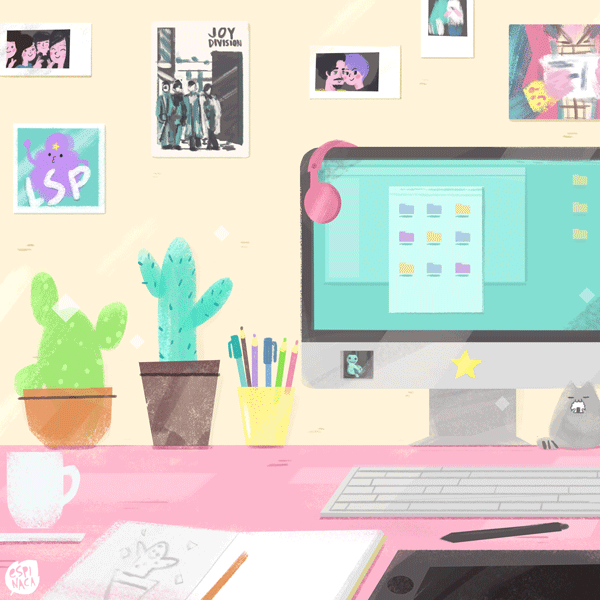What You Need for an Easier Freelancing Life
Freelancing is far from being easy. You know that. I know that. Working for yourself means you’re totally responsible for the outcome. You have no-one to push you to meet your deadlines and there’s no salary to protect you when you can’t get the work in. So, what tools can make your freelancing life a little less stressful? I got you, fam.
A Good Calendar
When you work for yourself, it’s important to manage your time well. Managing your business in a chaotic style will only lead to you dropping balls and disappointing clients.
Having a calendar tool you can rely on will help you to remember important meetings and dates without having to store all the information in your head. You can set reminders on your calendar, so you receive alerts when something important is coming up.
Google Calendar is free and you can sync it across various platforms, so you can easily add dates and you can view it on your computer, tablet, phone, etc. You can also use it to send meeting reminders to clients.
If you like non-digital calendars, I recommend the Living Well Planner. It has spots to plan your goals every month, to-do lists, must-do lists and more. It's what I use every day. Here are a bunch of similar planners on Amazon.
IT Solutions
Many freelancers rely heavily on IT to produce their work, connect with clients or colleagues and start new contracts. Having an IT problem can really set your work back, meaning you earn less.
Using managed IT services can be a godsend when you aren’t confident in trouble shooting. It’s one of the best ways to fix problems, find out what’s working for you and what’s not and keep things rolling when you take vacations. You can also get a digital personal assistant like Fin to figure out the fixes for you.
Communication
It’s all good and well using email as a way of communication, but if you’re working online day in and day out, there are far better tools.
Websites, like Basecamp for example, are ideal for communicating with clients via message and uploading or downloading work files. It’s a great way of knowing your files have been sent and received, rather than wondering about emails.
Productivity and Finance
Once you’ve got your freelance business up and running, it’s important to monitor how well you’re doing. Productivity and finance tools can show you how your business performs over set periods of time.
You may notice patterns you aren’t happy with and can rectify once you see them. It’s a good way of keeping track of the money you have coming in too. It’s ideal for keeping track of the taxes you’re likely to pay at the end of the financial year.
Social Media Management
There aren’t many businesses out there that are surviving without social media. It’s the best way of getting free advertisement and targeting a specific audience. However, social media can be another large task on your to-do list that you just don’t need.
Social media management tools can advise you on when and where you should be posting, and you can even write/create your posts in advance, ready for posting at a later date. That way, you can have all your posts for the coming month ready and waiting, and you don’t have to think about it as you’re working on client projects.
These kinds of tools make working in any capacity a lot less stressful, and there are plenty more out there!







